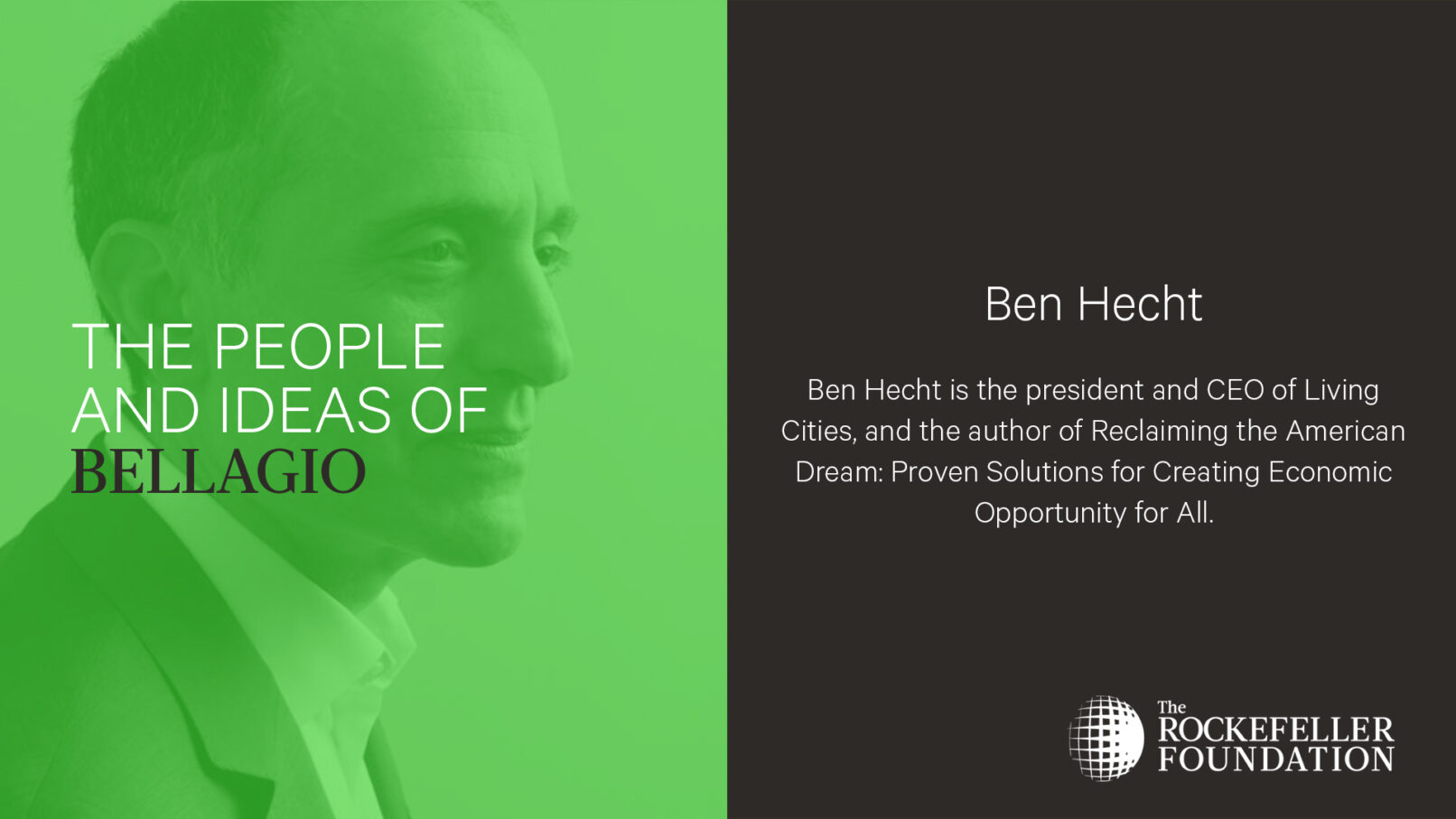My first time at Bellagio was in 2007. The Brookings Institution invited urban leaders from around the US, including me—I had just started running Living Cities, which brings together financial institutions and foundations to close urban racial and income gaps. So I was like a kid in a candy store with all those smart people, and I still rely on the professional relationships I made during that week to this day.
One was with Nancy Zimpher, who then was president of the University of Cincinnati. She told me a remarkable story: in 2001, a young boy was killed by the police in Cincinnati. The community leaders—public and private, business and philanthropic—recognized the police had failed, but they also came together to hold themselves accountable for systemic failures in local schools, “from cradle to career.” It was such a powerful idea that we gave them a grant to expand that framework beyond just education. Today it’s called Strive Together, present in more than 80 major regions of the US. It achieves social change through collective impact, by recognizing that social problems are so vast that no single entity can ever solve them alone, and sets concrete goals to get there. At the same time, it supports the volunteers who glue everything together. That all came from drinking wine with Nancy on the terrace at Bellagio.
A decade later, I was back. I was seeing amazing things happening across the US. Often urban leaders will try to apply successful policies from other cities to their own. What I learned was that if you see something once, then that’s once. But if you see it a dozen times, or more? That’s something real. I wanted to gather these ideas together into a book to prove that we don’t have to keep reinventing the wheel.
Ben Hecht
All of these conversations became ingredients in my soup.
The only thing people at Bellagio truly have in common is that they’re so interesting. Every night, over dinner, each of us would talk about what we were working on, and each would give their feedback. It was honest, simple, and extremely provocative. My creative process is to surround myself with disparate and conflicting ideas, so to have someone like [NAME], a National Medal of the Arts-winning performance artist, give me a critique grounded in her experience, made me think in a different way. [NAME], a diplomat for Brazil, kept referring to “American hegemony”—and after I got over my American arrogance, I conceded that there is an American hegemony, and it can be incredibly toxic. I called my book Reclaiming the American Dream, but of course “the American Dream” has historically been a white supremacist dream, and in many ways his constant reframing was helpful. All of these conversations became ingredients in my soup.
I wrote around 60,000 words while there, and that was the book. Within a month I was giving a TEDx talk, and I had more than a dozen other speaking engagements. I’m still promoting my ideas using my book. It’s all only been possible because of the residency.
Any individual who decides that they’re going to use their personal agency for good can be incredibly powerful. You go to a place like Bellagio, and you’re humbled by how extraordinary these people are. It gives you hope for humanity, and that’s not a well I get the chance to go to often these days.
We’d like to thank Ben for his continuing contribution to the network. Here are some other ways you can connect with the people and ideas of the Bellagio Network:
Find out more about Ben’s work at Living Cities.
Have you read his book, Reclaiming the American Dream, yet?
Visit The Library for this and other books on social change through collective impact.
Ben’s TEDx talk can be watched here. He can be booked as a speaker here.
Follow Ben on LinkedIn and Twitter. You may also want to connect Nancy Zimpher too.
If you like this conversation between Rikin Gandhi and Selcuck Ozgediz perhaps you might want to share it with your network.

